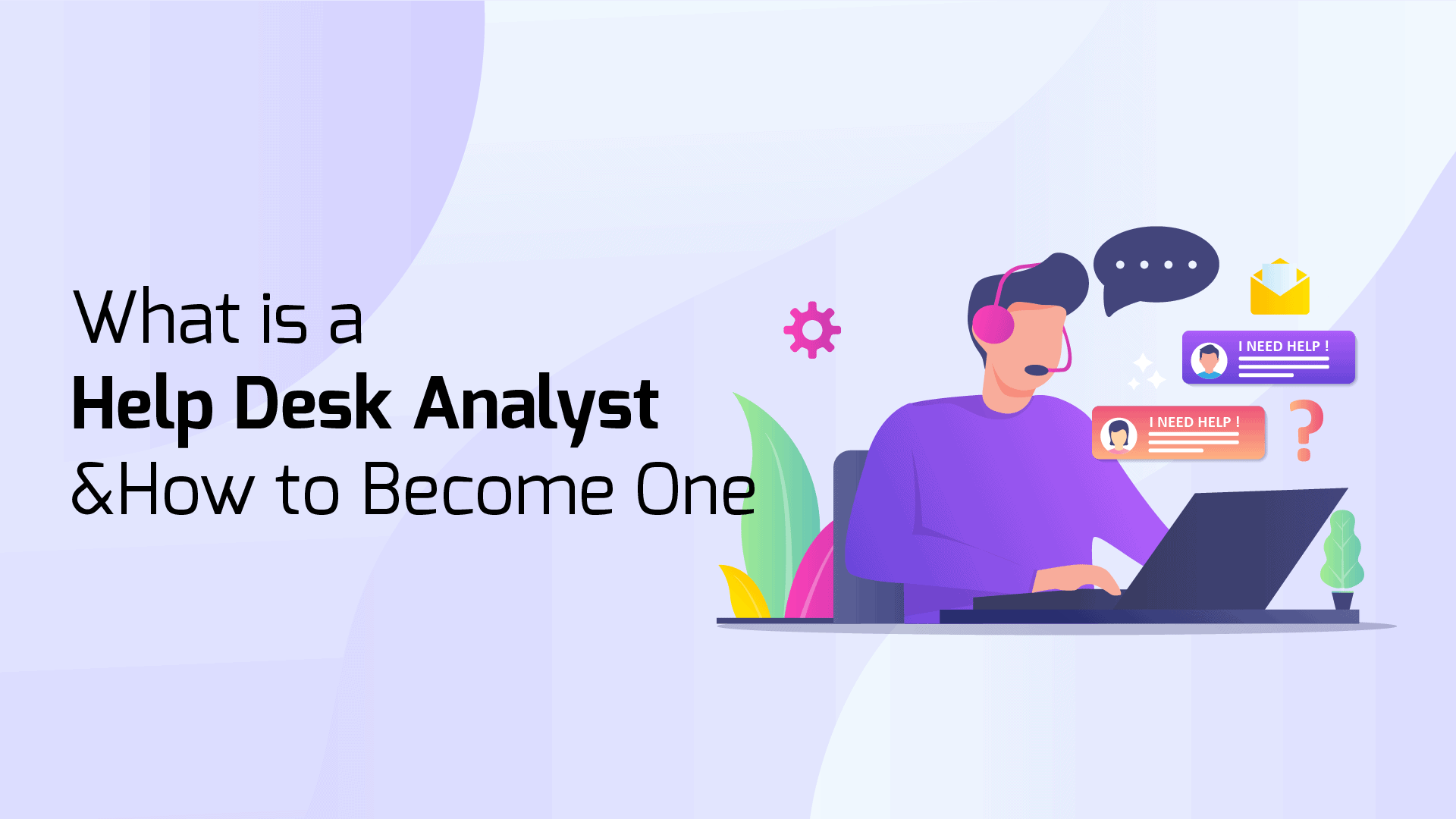Help desk analysts are one of the most popular and in-demand fields in information technology. Candidates new to IT often start in a help desk position while more experienced consultants turn it into a lucrative and rewarding career. As a generalized technology role, the specific systems and daily responsibilities will change depending on the organization and experience of the analyst, but some similarities remain across all levels.
What is a Help Desk Analyst?
A help desk analyst is usually the person, or persons, an organization relies on first for technical support. When a computer freezes, a user can’t log in to an account, or the internet suddenly stops working, it’s the responsibility of the help desk analyst to either solve the problem or escalate it to someone who can.
Much of the help desk analyst’s job is customer or client-facing. When an internal employee, or external customer, needs IT help, they call the analyst. This makes soft skills like communication, empathy, and patience a must-have for anyone in the role, especially those looking to make it into leadership.
Help desk analysts, especially in larger organizations, are typically organized in tiers.
- Tier 1 help desk analysts are the first to respond to a request for assistance and they handle somewhat simple problems that can be fixed on the spot. If the problem can’t be resolved immediately, it’s escalated into a support ticket.
- Tier 2 typically manages support tickets and are responsible for more advanced troubleshooting. If the issue is still too complex it’s escalated to Tier 3.
- Tier 3 help desk analysts typically have the most knowledge and experience. They handle the most complex concerns, monitor trends, and find ways to prevent them from occurring in the future.
What does a Help Desk Analyst Do?
Depending on what tier the help desk analyst is, and what scope of work the company expects from each position will determine what a typical day entails. All analysts spend a good amount of time interacting with people, so soft skills are needed regardless of the company culture.
Help desk analysts, especially in lower tiers, spend most of their time providing IT support over-the-phone, through email, through live chats, and by screen sharing or taking control remotely. On-site or in-person support may be necessary but is usually escalated to higher tiers to ensure that the remote help desk analyst is always available.
Middle tier help desk analysts are usually responsible for maintaining the company’s ticketing system. This includes assigning tickets, following up on open tickets, closing completed tickets, and setting reminders for issues that can’t be immediately resolved.
The highest tier help desk analysts are not only responsible for the most complex concerns, but for training other analysts as well. This includes in-person training as well as creating documentation for common problems. Tier 3 analysts are also usually responsible for the overall efficiency of the IT support team, so anything that betters the department is their responsibility.
Is Help Desk Analyst a Good Job?
Help desk analysts are heavily in-demand and the job is only expected to grow. According to the U.S. Bureau of Labor, computer support specialists are expected to increase by 8% by 2029, much faster than the national average. Being a help desk analyst gives you real-world experience with a variety of technologies, is a great way to use and learn a unique blend of technical and soft skills, and is often the best way to start a career in IT.
Looking for a job in IT? Check out our current openings!
or contact us directly via email: hello@ptechpartners.com.





 Work with us
Work with us